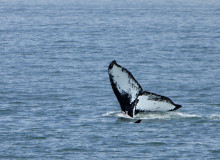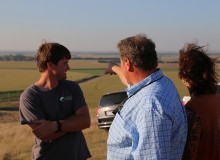Search

Maya van Rossum, shown here at an event in 2014, recently released a new book called “Green Amendment: Securing Our Right to a Healthy Environment.” (Chesapeake Climate/Creative Commons)
Tags: constitution, law, Policy, politics, book, environmental law, health, rights, expert voices
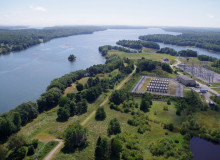
A bird’s-eye view on Maine Yankee, where 60 casks of spent nuclear fuel and four casks of irradiated steel, a type of low-level radioactive waste, stand in a square formation. (Courtesy of Maine Yankee Atomic Power Company)
Tags: nuclear, nuclear waste, Toxic pollution, nuclear power, federal government, politics, storyfest2020
Greg McGlinch owns Down Home Farms, a 450-acre family farming operation in Darke County, Ohio. “I hate seeing soil go down the creek because you’re losing a lot of valuable nutrients,” he said on June 26, 2021. “A lot of that you can’t put a monetary value on” (Photo by Jules Struck).
Tags: fao, agriculture, farming community, sustainability, communication, education, FAO Fellows 2021
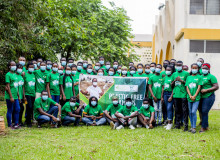
Members of one of GAYO Eco-Clubs at a Ghanaian university (Photo by the Green Africa Youth Organization)
Tags: ghana, Global South, circular economy, climate change, composting, recycling, GAYO, cop26, storyfest2022
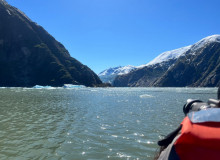
Ancient glaciers carved this canyon in Tracy Arm Fjord thousands of years ago. Our group sailed via Zodiac to the glacier’s face. (Halley Hughes/University of Arizona)
Tags: storyfest2022, Lindblad Expeditions, astonishing alaska, geology, #climatechange
Tags: astonishing alaska, Alaska, Humpback Whales, HappyWhale, Lindblad Expeditions, national geographic, storyfest2022
Tags: pfinnebraska, Nebraska, precision agriculture, agriculture, farm, storyfest2018
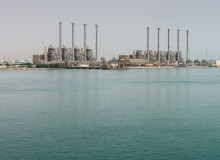
Azzizia Desalination Plant in Saudi Arabia. (Waleed Alzuhair/Flickr)
Tags: Water, Desalination, Technology
Traveling on boats is the main mode of transportation between islands of Guna Yala, and most are operated by local Guna people. (Luodan Rojas/Medill)
Tags: kalu yala, Guna Yala, sustainability, ecotourism, off grid living, sustainable living
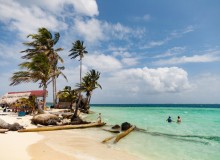
Diwigdi Valiente says that many older Guna people don’t understand climate change, especially since they have lived traditional lives that contribute very little to the problem. (Alex Schwartz/Medill)

